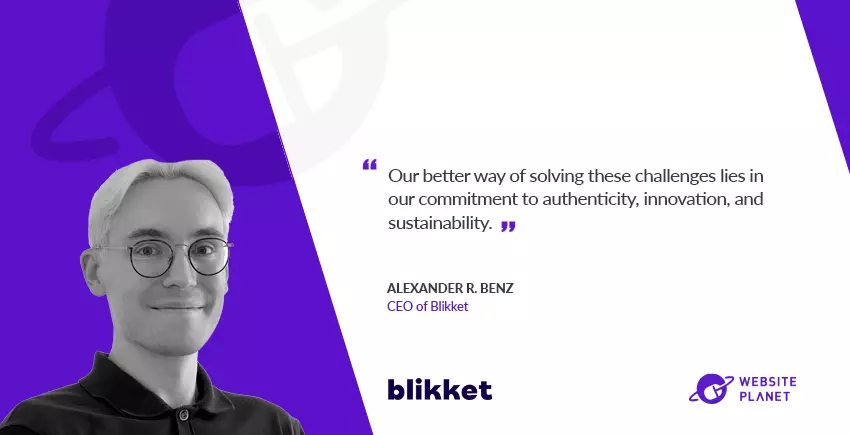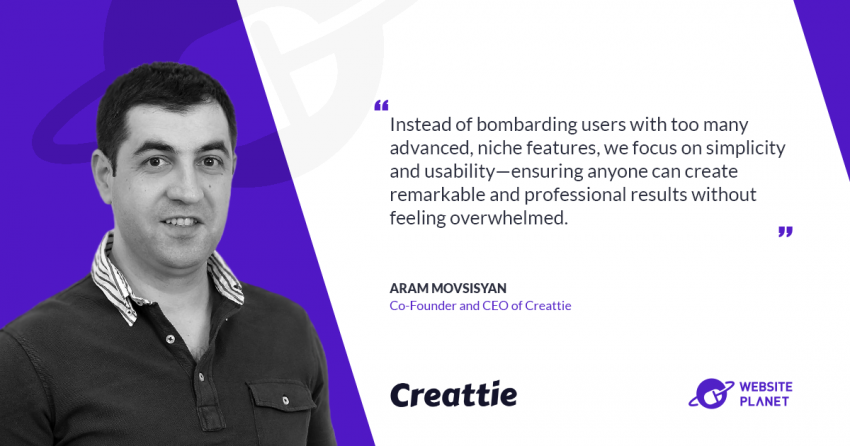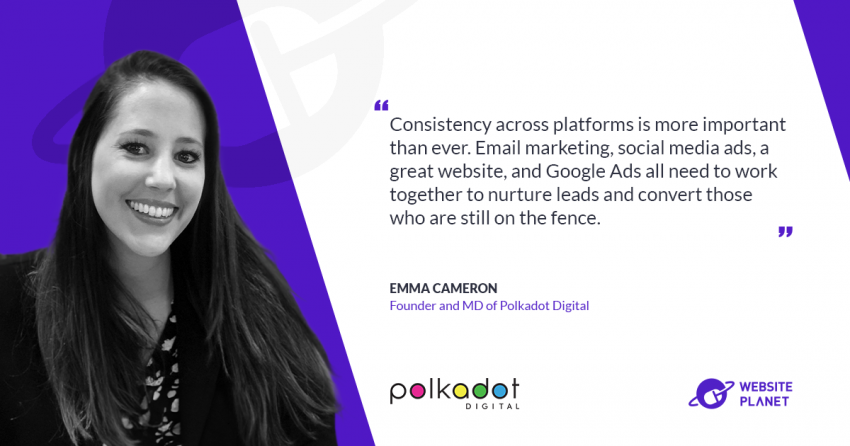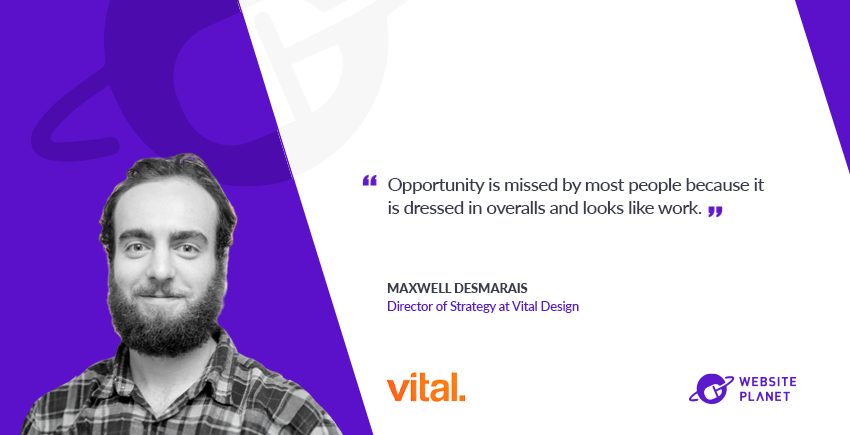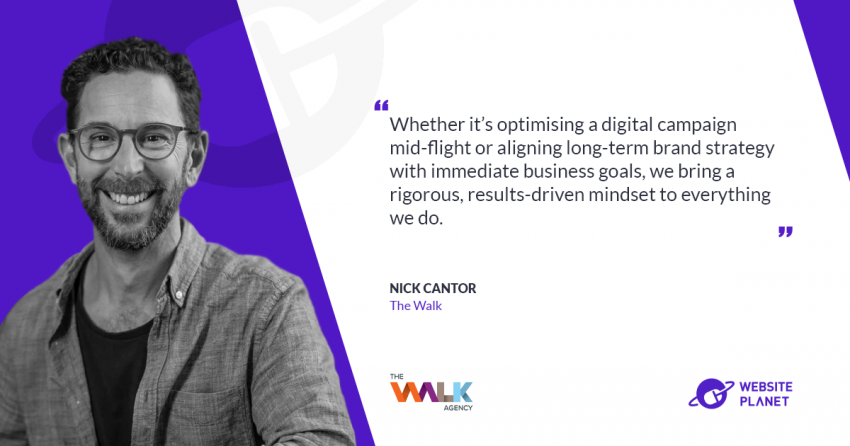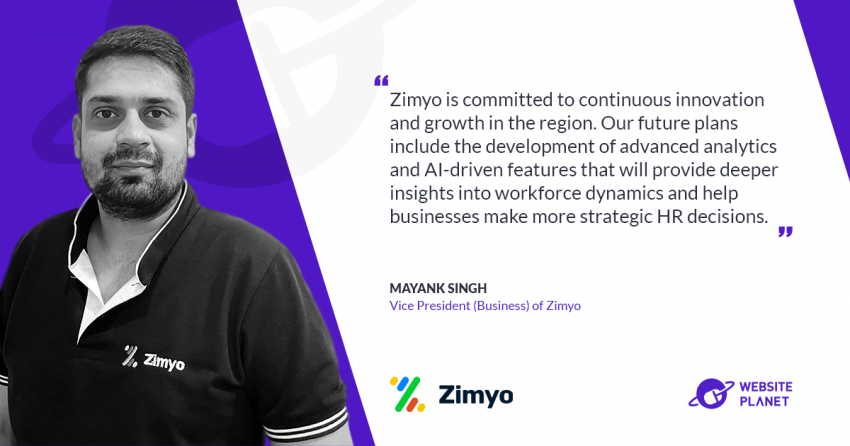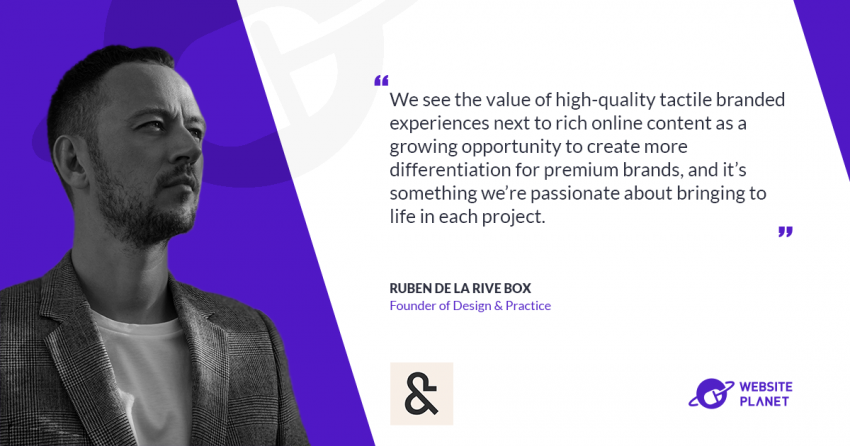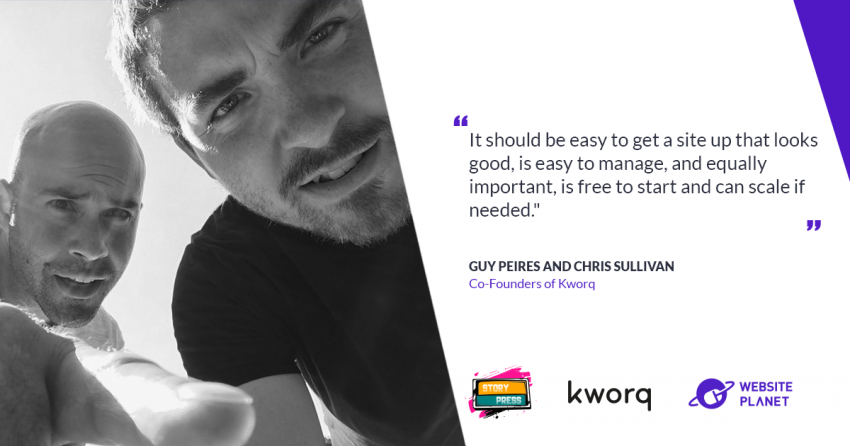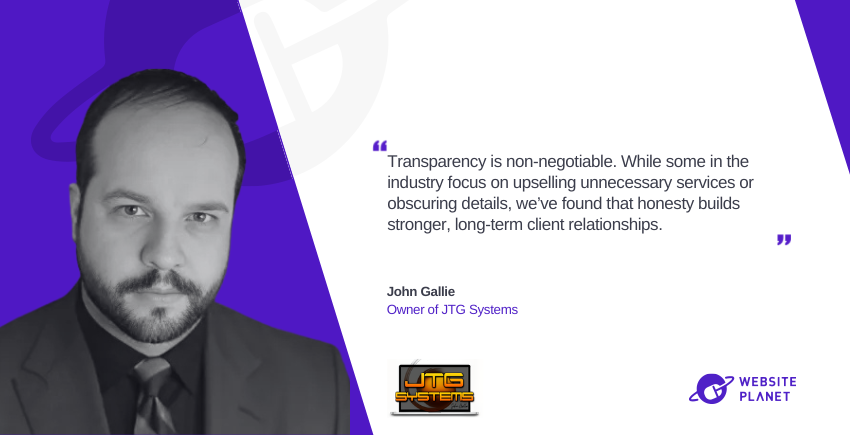TL;DR
After 14 years in product development and UX, Alexander admits that green marketing (the real one) is profitable if you really stick to it, but that is not easy at all unless you take the right approach.
What are the key challenges in your industry right now?
Right now the digital marketing industry is facing a series of challenges caused mainly by the unprecedented speed of technological innovation. I personally see three main areas of concern:1. The increasing need to balance profitability with sustainability.
With growing environmental concerns and a shift towards eco-conscious consumer habits, businesses face pressure to adopt greener solutions while remaining profitable. This requires them to rethink their strategies, invest in new green technologies, and integrate environmentally friendly practices into their digital operations.
How marketing is consistently promoting highly polluting lifestyles and overconsumption of high-carbon products:Data sources:
- People are exposed to 4,000+ ads per day, of which few ones show nature. This makes people care less about nature. Recent studies indeed show a direct correlation between biodiversity loss and how often advertising includes nature.
- Companies make 50% of their revenue from new product launches. This explains why they encourage impulsive buying through marketing, and why they have reduced their product life cycles by 1/4 compared to 15 years ago. Big sales days like Black Friday etc. bring this to a whole new scale, with 80% of purchases ending up as waste within a year (including most returned items).
Data sources:
https://supplychaindigital.com/procurement/product-life-cycle-decline
https://science.thewire.in/environment/black-friday-sale-environmental-impact/
https://www.wwf.org.uk/sites/default/files/2022-10/lpr_2022_full_report.pdf
https://www.theguardian.com/commentisfree/2021/oct/11/advertising-industry-fuelling-climate-disaster-consumption
2. Staying ahead of the constant technological advancements and digital trends.
The industry evolves rapidly, with new tools, algorithms, and platforms emerging regularly. Adapting to these changes, understanding their implications, and leveraging them effectively to drive results pose ongoing challenges for businesses in digital marketing.3. Ensuring data privacy and security in an increasingly connected world is a pressing concern.
With the rise of data breaches and privacy regulations, companies must navigate complex legal frameworks and implement robust security measures to protect their data and consumer information. Only by addressing these challenges head-on and proactively adapting to industry trends, companies can stay competitive and relevant in the ever-evolving digital marketing landscape.How Zooca.no increased conversions while saving CO2
By combining innovative UX/UI design, CRO strategies, and cutting-edge marketing techniques, our collaboration with Zooca resulted in a significant 150% increase in conversions. Moreover, our efforts led to saving 2.4 tons of CO2, showcasing the positive impact of our work on both conversion rates and environmental sustainability.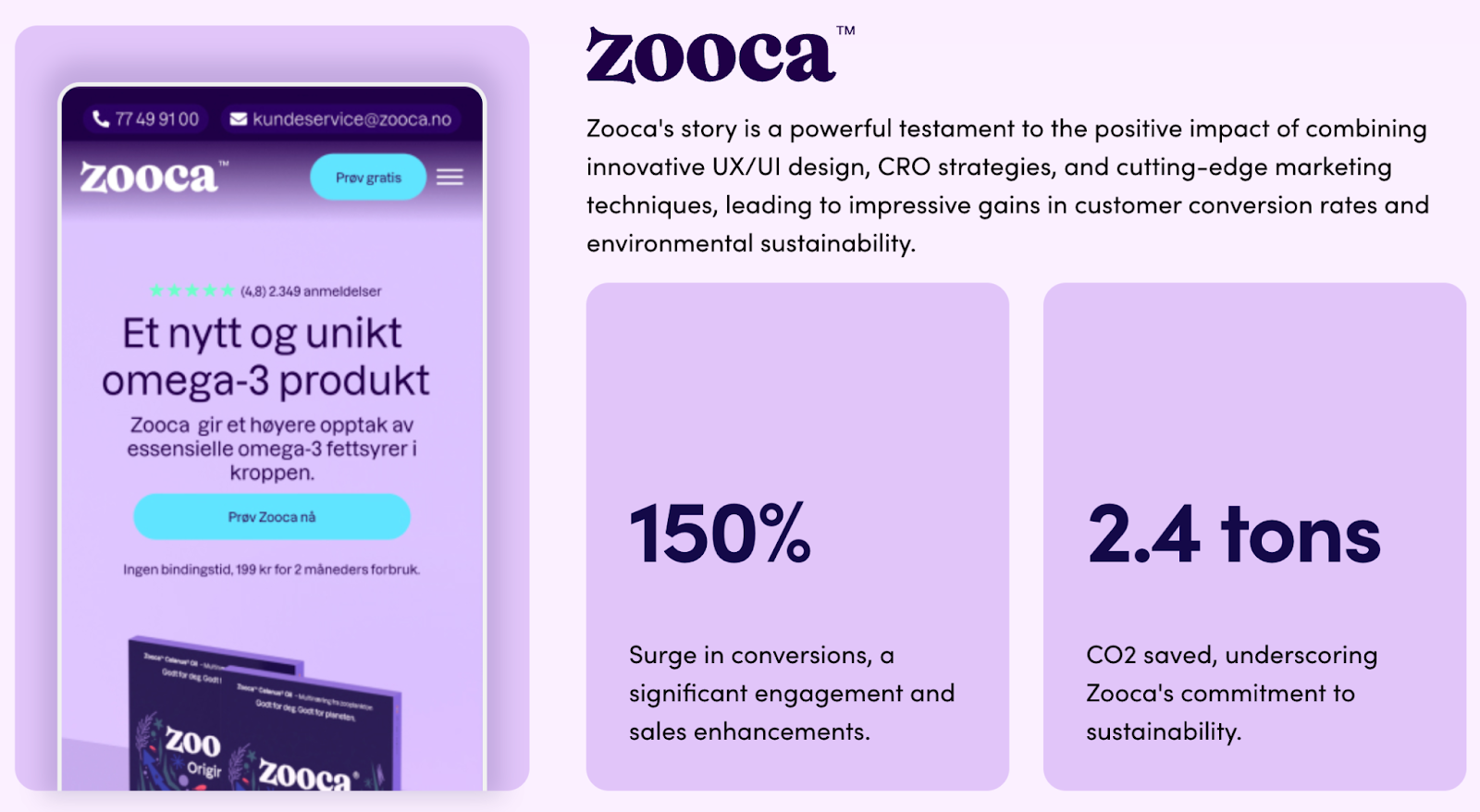
How are companies trying to solve these issues, and why are these solutions not ideal?
Many businesses are incorporating eco-friendly practices into their operations to balance profitability with sustainability, such as optimizing energy usage, reducing waste, and investing in renewable energy sources. Some companies also implement green marketing initiatives to appeal to environmentally conscious consumers and differentiate themselves in the market. However, these solutions may only sometimes be ideal due to several reasons: Some businesses are engaged in greenwashing, promoting themselves as environmentally friendly without making significant sustainable changes. This can lead to consumer mistrust and damage their reputation. Sustainability also comes at a high cost. Implementing sustainable practices can often require substantial upfront investments or resources, deterring some companies from fully committing to long-term environmentally friendly strategies. Add to those the complexity of regulatory frameworks and varying sustainability standards across regions, which make it challenging for businesses to navigate and ensure compliance. The result is that, while efforts to address sustainability and profitability challenges are commendable, ensuring genuine commitment, transparency, and alignment with evolving environmental standards is essential to making a meaningful impact in the digital marketing industry.+200% conversions and -1.2 tons of CO2 for Nimbo
Through meticulously optimized landing page design, we achieved a remarkable 200% conversion increase. Additionally, our sustainable practices saved 1.2 tons of CO2, marking a significant leap in online engagement metrics and environmental responsibility for the company.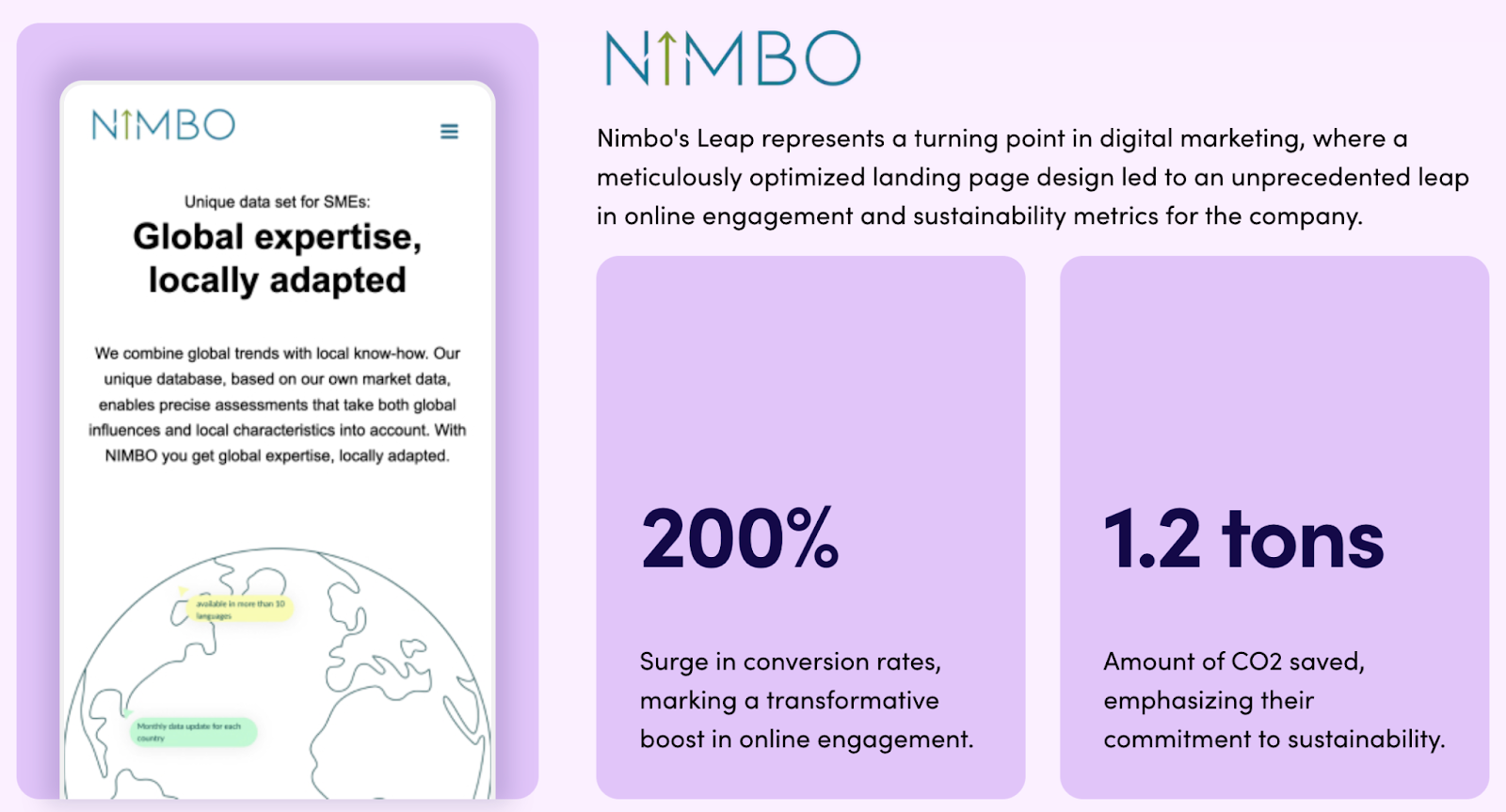
How do you solve these problems in a better way?
At Blikket, we approach the challenges of balancing profitability and sustainability comprehensively and effectively. Our unique approach involves integrating eco-friendly practices into our core business operations, ensuring that sustainability is not just a side feature but a fundamental aspect of our services. We prioritize transparency and authenticity in our sustainability initiatives, ensuring our environmental commitment is ingrained in every aspect of our work. We strive to lead by example, showcasing genuine dedication to reducing our carbon footprint and promoting eco-conscious practices. This authenticity builds trust with clients and stakeholders, demonstrating our sincere efforts to impact the environment positively. Moreover, we take a proactive stance in staying ahead of technological advancements and industry trends. By investing in continuous innovation, research, and development, we strive to integrate cutting-edge technologies and strategies to drive results for our clients. This forward-thinking approach enables us to adapt to changes swiftly, enhance our services, and deliver exceptional outcomes aligning with profitability and sustainability goals. Our better way of solving these challenges lies in our commitment to authenticity, innovation, and sustainability. By embedding these principles into our operations, we address industry challenges effectively and set new standards for sustainable digital marketing practices.“Working with Blikket is exceptional. They quickly grasped our essence, adapted to diverse models, and delivered outstanding designs and CRO insights. Their value surpasses costs, making collaboration highly productive and cost-effective.”
Marc Uhlmann, CEO of Nimbo
+$20 million ARR for Ark
We partnered with Ark.no, Norway’s largest book retailer, and through strategic UX design and conversion rate optimization (CRO) efforts we managed to generate a 300% increase in conversions, which translated into $20 million annual added revenue.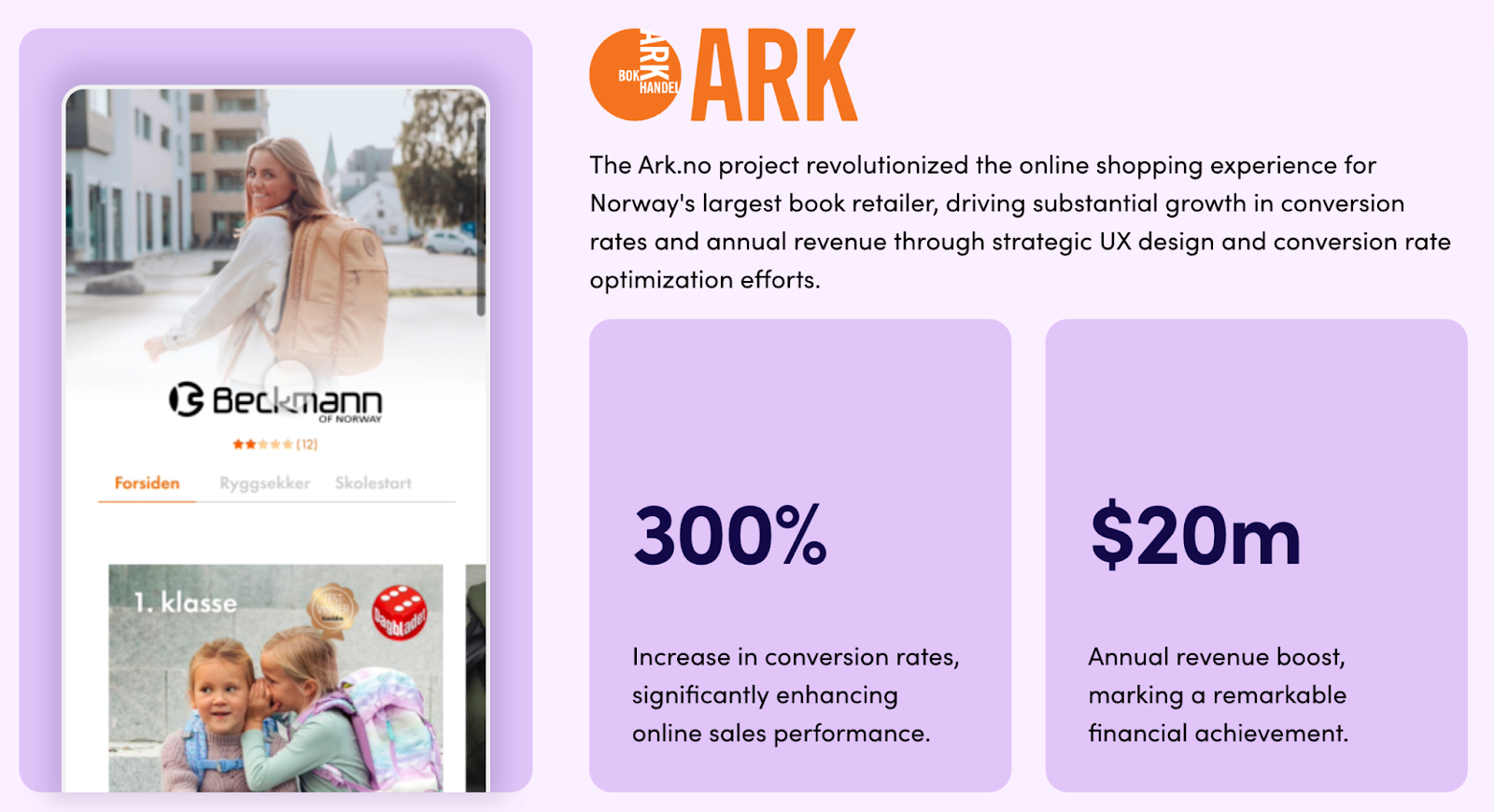
What new challenges and opportunities do you see coming in the future?
One key challenge on the horizon is the increasing demand for personalized and tailored experiences. With consumers expecting more customized interactions and content, businesses must invest in data-driven strategies and advanced technologies to effectively deliver targeted and relevant messaging. Another challenge is navigating the intricate landscape of data privacy and security regulations. As data protection laws evolve globally, companies must stay abreast of compliance requirements and implement robust measures to safeguard customer data and maintain trust. At the same time, effectively leveraging emerging technologies like AI and voice search can lead to more immersive and personalized customer experiences, opening up new avenues for brands to connect with their audience and differentiate themselves in the digital space. Of course, that should be done with a strong emphasis on sustainability and corporate social responsibility to allow businesses to align with consumer values, showcase their commitment to environmental stewardship, and positively impact society. Overall, as the digital marketing landscape continues to evolve, staying agile, innovative, and adaptable will be critical for businesses to navigate challenges and capitalize on the diverse opportunities that the future holds.By embracing new technologies, prioritizing customer-centric strategies, and upholding ethical and sustainable practices, companies can position themselves for success in the ever-changing digital marketplace.
